|
Before starting a construction project, you need to hire the right construction team to get it done. However, it won't matter if you hired a reputable construction team if you cannot trust the contractors' skills. And when you don't have reliable contractors, you can expect the entire project to fail. If you're new to hiring construction contractors, you have to learn the many issues they face every day to prepare yourself. Not knowing may result in unnecessary panicking and potentially cause more problems than usual. But with a professional construction contractor with years of experience, it's almost impossible to mess up the project. 1. Undefined Project Objectives Every construction project requires extensive planning between the client and the contractors to ensure it starts without a hitch. They need to develop well-defined goals that usually involve contacting other people, such as construction material suppliers and other essential people for the project. But in some cases, contractors have difficulty coming up with well-defined goals for several reasons, including lack of experience or impossible deadlines. Whatever the reason, they have to discuss everything with the entire team and the client to avoid severe roadblocks within the construction project. Even if they complete the project, there's a high chance they used shortcuts. If you don't want that happening to your construction project, you must determine that your contractor has everything needed to get the job done. 2. Lacking Budget for the Project Setting aside too small of a budget and expecting your contractor to do a good job is unrealistic. You will find this to be especially true when it's a complicated project that requires a ton of materials like heavy-duty access doors and a sizable workforce. Some clients do that, and they mess up the entire construction project, which causes them to lose a lot of money. The best way to avoid budget issues is to slightly over-budget. Doing so will let contractors finish the project without having to recalculate every time there's a purchase. However, the client needs to learn how the project will go down and ensure the contractors use the budget accordingly. They need to see proof of the prices of everything that they buy, such as the materials, worker's compensation, and renting of construction equipment. And if you only want to provide them an exact budget, you have to discuss with the project manager and find out how they plan on finishing the entire project. 3. Improper Time Management The most crucial aspect that every contractor needs is to finish the project on the agreed schedule of completion. Before anything else, you have to learn if the contractor you hire is up to the challenge, especially when you want to finish the project on a tight schedule. Only a handful of professional contractors can make that promise, and they may not be easy to find. But in some cases, clients can give out impossible deadlines that no contractor can do. Usually, the planning stage takes up most of the time because the client and the contractor discuss everything on what will happen during the entire construction project. However, one way you can help finish your job faster is by hiring two project managers or construction teams to work simultaneously. The only downside to hiring two teams to work on your construction project is you may have to increase your budget. 4. Impractical Expectations One other issue arises when clients give contractors impossible tasks expecting them to be finished on time and within budget. As previously mentioned, not too many contractors can complete a construction project before the deadline, especially if it's a highly complex job. Usually, with open communication, the clients and the contractor can plan to meet somewhere in the middle, ensuring the contractor can finish on time and prevent any issues with the construction project. 5. Uncontrollable Site Risks Note that every construction project has risks, including safety hazards. If anyone gets severely injured within the project site, there's a chance that the project will halt because the project managers need to assess the entire area and learn how the accident happened. Ensuring the construction site stays safe at all times is necessary to prevent injury and to stay on deadline. ConclusionSince you now know the common issues that contractors face during every construction project, it can help you assess what's best for your project and how you want it to go. Be sure to choose your contractor wisely, be reasonable in your expectations, and set a realistic project for your next construction project!  Author Bio: Chris Jackson is an experienced Business Development Manager with a demonstrated history of working in the construction industry. He is currently employed by Best Access Doors, an access door supplier in the US and Canada, and has been working for the company for more than 12 years now. His area of expertise is on Negotiation, Roofers, Sales, Project Estimation, and Facility Management (FM) Other Useful Articles: 14 Questions to ask your building contractor's clients Before employing a building contractor ask these questions Steps to finding a building contractor to renovate your home or build your house Do you want to learn how to manage construction projects successfullyPaul Netscher has written several easy to read books for owners, contractors, construction managers, construction supervisors and foremen. They cover all aspects of construction management and are filled with tips and insights.
Visit to read more. The books are available in paper and ebook from most online stores including Amazon.
0 Comments
When you want to construct a new building, ensure that you have everything planned, so the construction process proceeds without issues. There were many instances when the entire construction project went into chaos because the team tasked to finish it rushed everything and didn't have enough time. One part of the construction project that needs proper planning is the roofing. Contractors need to plan out every part of the building, including the roof, to protect the people inside. If you are a new roofing contractor, you need to learn about several things to consider about new construction roofing. Roofing CostThe first factor to consider about new construction roofing is determining the amount of budget your client wants to spend for it. Clients will always ask for an estimation about the entire building roofing process, so you need to give them the exact numbers. Sometimes, roofing contractors ask them for a slightly bigger budget, especially when they want more features added to the roofing. The entire construction roofing project will always end up with the budget the client gives you. With a limited budget, you need to make do with what you have. Most professional roofing contractors can fit any reasonable budget into constructing the roofing. Note that low-cost roofing does not mean that contractors will use low-quality materials and cheap construction methods. Instead, it means that they will find more affordable alternatives with almost similar properties to the expensive ones, which is the best option if you don't want to pour too much money on roofing alone. Weather ConditionsAnother factor to consider is knowing how the weather will go down during the new construction roofing. There are instances when you won't know what the weather will be on a specific day, so you have to adjust to the weather conditions. If bad weather occurs during the construction roofing process, you must prepare all of the essential equipment to let contractors work. You have different weather conditions to think about, such as rain, heat, and snow. During rainy seasons, you need to ensure that your roofing contractors have raincoats and wear slip-resistant shoes if they want to work on the roof without sustaining severe injuries. You will never know when someone will fall because they slipped. What makes it worse is the heavy rain makes it hard for contractors to see what's in front of them. You should also install waterproof roof hatches right away to seal off the gaps and prevent rainwater from going inside the building. And when the sun is high, and the heat is unbearable, you have to ensure everyone stays hydrated and doesn't stay too long under the sun. You can provide them shade if there's a tight deadline they need to meet to protect them from the blazing heat. And if you want to prevent them from getting heatstroke, it's best to let them take a break until the sun isn't too hot anymore. During the snowy season, the snow can become a problem when doing new construction roofing. The snow can accumulate on the roof, making it difficult for workers to move around. It's best to clear out the snow from time to time by appointing someone to take charge of the snow removal process. Also, don't forget to keep your workers warm by providing a heater during their breaks and thermal clothing when they're working on the roof. Roof DesignYou can't start constructing a new roof for a building if you haven't discussed the type of roof your client wants. Making sure they know what to expect with the roof is essential if you don't want any complaints coming from them. When it comes to commercial buildings, clients usually prefer to have a flat roof because they can use it as another level for people to use. However, other commercial buildings have a slanted roof design, which is perfect for achieving an aesthetically pleasing structure. Of course, it won't matter if you have the best roof design if you don't have the right roofing contractors. But once you have the right roofing contractors for the job, your clients can expect the roofing process to go smoothly. Besides the roof design, you also have to talk with your client about what roofing material they want to use. Most commercial buildings use asphalt roofing because it's inexpensive and lasts longer than other roofing materials. Another is metal roofing, which is also affordable. The only downside with it is that it rusts after a while, especially if you don't maintain it regularly. The rust can cause holes in the roof, and it can let in rainwater inside the building. Ensure you remember all of the factors to consider if you want no issues happening to the new construction roofing.  Author Bio: Chris Jackson is an experienced Business Development Manager with a demonstrated history of working in the construction industry. He is currently employed by Best Access Doors, an access door supplier in the US and Canada, and has been working for the company for more than 12 years now. His area of expertise is on Negotiation, Roofers, Sales, Project Estimation, and Facility Management (FM) Other Useful Articles: Designing the best house for you and your family What will your new house cost when you are living in it How easily can your house be built? Is it constructable? Want to learn more about designing, renovating and building houses?Paul Netscher has written 2 easy to read books 'An Introduction to Building and Renovating Houses - Volumes 1 and 2'. An Introduction to Building and Renovating Houses Volume 1 deals with Hiring Contractors, Managing Construction and Finishing Your Home. and Designing your ideal home Volume 2 deals with Finding Your Ideal Property and Designing Your Dream Home.
("Great for those that DIY. Very helpful in home renovations!" said a Reader on Amazon.com 5*****) These books are available from Amazon and other online bookstores in paper and ebook. It’s good practice to inform your neighbours of what construction work will be taking place on your property, when it will start, the expected duration and how the building work will impact them. This can be done in a letter drop, or by visiting them. Try and allay any concerns they may have about the building and renovation work. Be honest – don’t tell them there won’t be noise when there always is with construction. It’s useful to provide them with your contact details so they can talk to you if they have any concerns during the construction process. Always notify neighbours ahead of time when access to their homes may be disrupted. Neighbours forewarned are often more understanding. Always try and resolve conflicts involving the construction work with your neighbours as soon as possible. Never let problems escalate where people could start digging their heals in because they feel their concerns and grievances aren’t being heard. Unfortunately minor annoyances can turn into major problems. Ensure your contractors respect your neighboursMake sure that your contractors consider your neighbours. This includes that:
which we discussed in our previous article. Upset neighbours will make your home renovation project difficultYou will probably have to live next to your neighbours long after your home renovation project, or your new home is, is completed. Don't let your building works irritate your neighbour, or damage your relationship. A little extra care by your building contractors will ensure that problems are kept to a minimum. Good communication between you and your neighbours, and your contractors and your neighbours can smooth over many of the issues. Most neighbours are understanding - especially when you communicate with them. Always put yourself in their shoes. Understand how you would feel in their place with the building works. Are you being fair to your neighbour? You need to manage your building contractors to minimise annoying and inconveniencing your neighbours. Other Useful Articles: Read This Before Selecting Your Home Renovation and Building Contractor. Builder demolishes new Florida home after building too close to neighbour Brand new houses to be torn down because of non-compliance to planning permissions  This is an extract from the author's book 'An Introduction to Building and Renovating Houses: Volume 1 Hiring Contractors, Managing Construction and Finishing Your Home'. © 2021 This article is not to be reproduced for commercial purposes without written permission from the author. Want to learn more about designing, renovating and building houses? Paul Netscher has written 2 easy to read books 'An Introduction to Building and Renovating Houses - Volumes 1 and 2'. An Introduction to Building and Renovating Houses Volume 1 deals with Hiring Contractors, Managing Construction and Finishing Your Home. and Designing your ideal home Volume 2 deals with Finding Your Ideal Property and Designing Your Dream Home. ("Great for those that DIY. Very helpful in home renovations!" said a Reader on Amazon.com 5*****) These books are available from Amazon and other online bookstores in paper and ebook. Before building starts set the ground rules with your contractorBefore your contractor starts work on your home building or home renovation project it's good practice to ensure everything is in place for your project. Important questions to ask were discussed in our article Questions to ask before starting a home renovation, or building a new house. Then we said to check your insurance Before starting your home building project check your insurance. Another important topic was locating and protecting utility lines Locating and protecting utility lines while building or renovating your house. Of course always make sure this is the right time to start construction When to start your home build and renovation project. Is now the right time? We also noted how important it was to ensure all planning permissions were in place Why you shouldn't start work without all the planning permissions in place. Right so you've done all that. You've Checking Your Contractor's Price (Quotation). Finally you've awarded the contract to a contractor. Can you let them simply start work? Well it's good practice to have kick-off or start-up meeting with the contractor and their supervisors and project manager before they start working on your new home or renovation project. Building project start-up or kick-off meetingsThis meeting is useful to:
Don't forget to take down the details of attendees, and importantly their contact details. Make notes of things you committed to attend to at the meeting, then ensure you follow through. You may even want to keep notes of the things discussed at the meeting for future reference. Even consider circulating a record of the discussion to all attendees. Good communication is essential on your building projectIt's important to set the right tone for the building project, ensuring that everyone knows what to do, understands project rules and hazards, and knows what is expected from them. You certainly don't want things going wrong with your home building project - especially problems which should have been avoided with good communication. Of course now that you've had your kick-off meeting and the contractor is good to go that does not mean that you can sit back and relax, returning only when the contractor has finished your new home. In our article When inspecting your new home build and renovation project you should check we examined that you should regularly check your contractors.  This is an extract from the author's book 'An Introduction to Building and Renovating Houses: Volume 1 Hiring Contractors, Managing Construction and Finishing Your Home'. © 2021 This article is not to be reproduced for commercial purposes without written permission from the author. Want to learn more about designing, renovating and building houses? Paul Netscher has written 2 easy to read books 'An Introduction to Building and Renovating Houses - Volumes 1 and 2'. An Introduction to Building and Renovating Houses Volume 1 deals with Hiring Contractors, Managing Construction and Finishing Your Home. and Designing your ideal home Volume 2 deals with Finding Your Ideal Property and Designing Your Dream Home. ("Great for those that DIY. Very helpful in home renovations!" said a Reader on Amazon.com 5*****) These books are available from Amazon and other online bookstores in paper and ebook. Building material deliveriesWe discussed Purchasing Building Materials For Your Home Building Project in a previous article. In that article we said that you must ensure you understand how the material will be off-loaded when it arrives on your project, whether that's a new build home, or a renovation of an existing home. In this article we look at planning building material deliveries, what to check before you offload the materials, then protecting your building materials Planning construction material deliveriesYou probably have limited space to stack and store materials when you are building or renovating a home so you need to plan deliveries so items arrive just before they’re required for construction. In many cases you may have to offload the trucks, and this has to be done safely and in a limited time. Accident offloading reinforcing steel. For instance, trucks delivering concrete come in six cubic metre (six cubic yards) loads (sometimes four, five or eight). Smaller loads get charged at a higher rate. But concrete goes off usually within four hours so the truck needs to be offloaded and the concrete placed in this time. But, concrete suppliers also charge extra if their trucks aren’t offloaded within a specified period (often fifteen to thirty minutes) and these charges can quickly mount up. Worse still, some suppliers may refuse to wait long periods while you organise to offload their vehicles or finish other tasks. Of course with concrete trucks you don’t want to be waiting for the second truck of concrete while the concrete that’s already been placed sets, which could result in a ‘cold joint’ in the concrete which impacts the structure’s integrity. So concrete suppliers must be aware of the gap you want between the trucks. See Understanding Concrete - Why Builders Need to Know More Deliveries have to be carefully planned and timed. You should:
Checking your construction materialsBefore building materials are offloaded the delivery documents should be checked to see that the materials are in fact for your project (you won’t be the first project to offload materials which weren’t intended for them) and that the materials are correct. You definitely don’t want to be placing concrete in your house that’s of a lower strength than what’s specified. Check that the construction materials are of the right quality. Defective and broken materials should be reported on the delivery document and the supplier should be notified immediately in writing. Preferably the defective and broken materials should be returned to the supplier on the same vehicle. Storage of construction materialsBuilding materials should be stacked so they’re accessible and in a manner that they won’t topple over (even in a strong wind) damaging the items and even injuring someone. Materials shouldn’t be offloaded where they’ll block access to work areas, or block, or restrict, public walkways and roads. Some construction materials must be protected from the sun or rain. They should be kept under shelter or covered by tarpaulins. Tarpaulins must be securely tied down after items are removed from the stack. Handle materials carefully so they aren’t damaged. Light items, such as roof sheets and boards should be tied down so unexpected winds don’t blow them into the air, which is dangerous and damages the materials and the items they come in contact with. Expensive items that can easily be stolen should be locked in sheds or chained on the property. Theft of building materials is costly and results in delays. Managing your construction materialsBuilding materials are expensive so you don't want them damaged, stolen, or wasted. You also don't want to be paying for damaged materials received from the supplier, or for materials which you did not receive. Delivery trucks which are kept waiting to be offloaded could cost you extra money, or possibly the truck could go back to the depot before you've offloaded your materials and you may have to wait a few days before the materials are delivered to your project again - which will cause delays and result in additional costs. Other useful articles Good communication with your building contractors is vital Why are you waiting for materials for your home construction project? Will your home build project finish on time  This is an extract from the author's book 'An Introduction to Building and Renovating Houses: Volume 1 Hiring Contractors, Managing Construction and Finishing Your Home'. © 2021 This article is not to be reproduced for commercial purposes without written permission from the author. Want to learn more about designing, renovating and building houses? Paul Netscher has written 2 easy to read books 'An Introduction to Building and Renovating Houses - Volumes 1 and 2'. An Introduction to Building and Renovating Houses Volume 1 deals with Hiring Contractors, Managing Construction and Finishing Your Home. and Designing your ideal home Volume 2 deals with Finding Your Ideal Property and Designing Your Dream Home. ("Great for those that DIY. Very helpful in home renovations!" said a Reader on Amazon.com 5*****) These books are available from Amazon and other online bookstores in paper and ebook. |
AuthorI’m a construction professional, author of several successful construction management books, and a home owner. I’ve made mistakes in construction management, I’ve seen others make mistakes, but importantly I’ve had multiple successful construction projects and I’ve learned from the mistakes. I want to share these lessons and my knowledge with you. Also available from:
Amazon Au, Amazon DE, Amazon ES, Amazon CA, Amazon IT, Amazon FR, Amazon NL, Amazon India and 'An Introduction to Building Houses - Volume 2 Finding Your Ideal Property and Designing Your Dream Home'
Archives
July 2024
CategoriesWe welcome genuine comments, especially comments that add additional information to the subject matter in the article. We however reserve the right to remove inappropriate comments, which includes comments that have nothing to do with the subject, comments that include inappropriate language, and comments that are an advertisement for a product or company, or which include an advertising link. Comments must be in English. We will not enter into discussion on why a particular comment was removed.
|
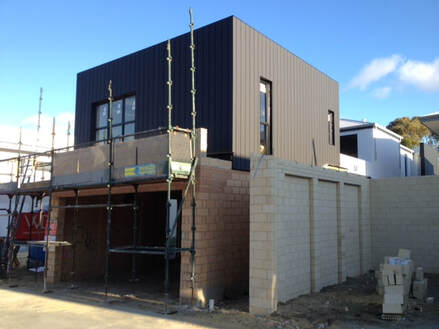
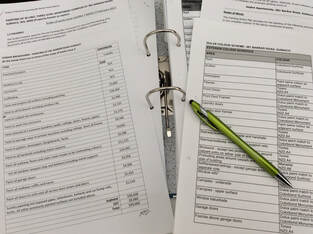
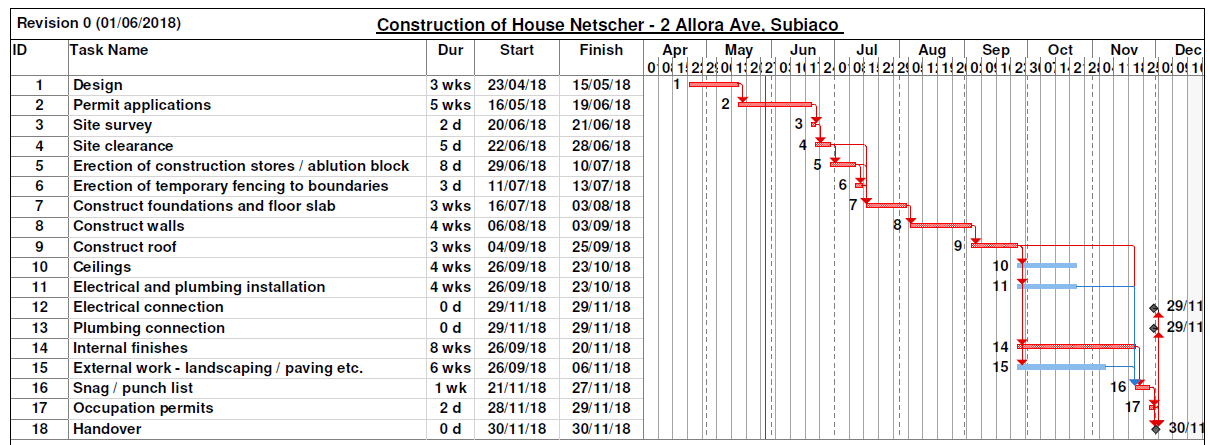

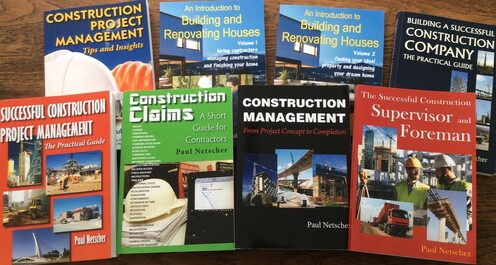

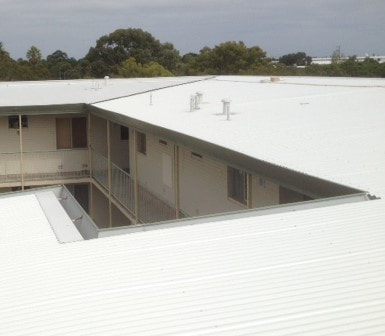




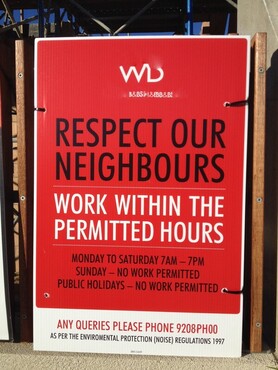


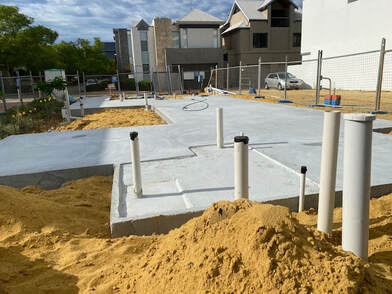
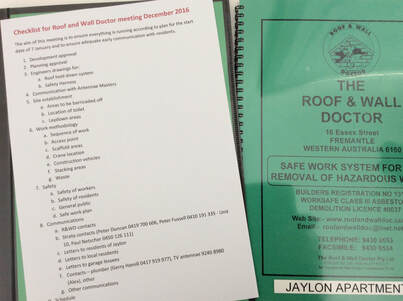



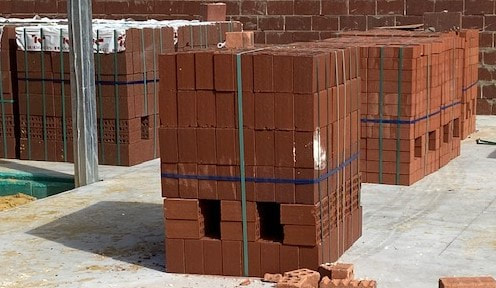
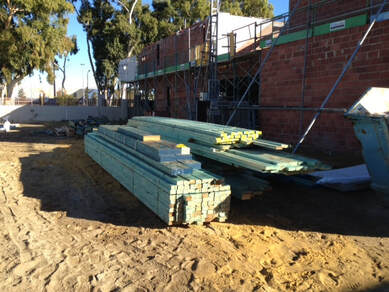


 RSS Feed
RSS Feed


